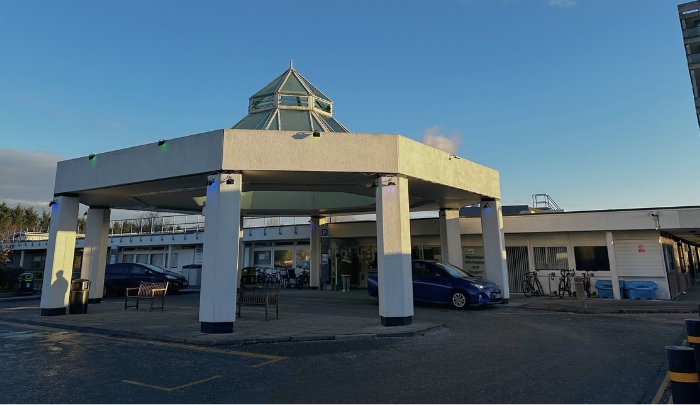Frimley Health's department of anaesthesia has been awarded national accreditation by the Royal College of Anaesthesia of Great Britain. This means that if you're referred to any of Frimley Health's hospitals for a procedure, your anaesthetic provision is patient centred and of the highest quality.
Your anaesthetist will administer your anaesthetic and be responsible for your safety and wellbeing during your procedure.
They will carefully monitor you throughout your operation, make sure you wake up comfortably and also help with pain management after the procedure.
Anaesthetists are involved in developing treatments to manage chronic pain and offer intensive care support to very sick patients.
Anaesthetics is one of the largest departments at Frimley Health. The department works closely with intensive care, maternity and pain management.
Services provided:
- Inpatient / acute pain management - the pain team nurses and doctors visit patients and support staff throughout the Trust.
- Outpatient chronic pain management – outpatient and clinic services for people with ongoing, persistent pain management issues.
- Critical care for patients with life threatening conditions, including life support machines, kidney support, and other drugs and modes of treatment.
- Coordination of the medical emergency outreach team, who respond to patients with increasing levels of life threatening illness.
- Pre-operative assessment - Some patients may be referred to our high risk anaesthetic clinic or cardiopulmonary exercise clinics. These clinics are to discuss some of the risks from surgery and support patients with decision making regarding their care.
- Local anaesthetic - often used during minor procedures where a small area of the body is numbed and you remain fully conscious
- General anaesthetic - often used for more serious operations where you're totally unconscious and unaware of the procedure
- Regional blocks – a local anaesthetic, giving numbness or pain relief for deeper operations where more extensive numbness is needed
- Epidural – a regional anaesthetic usually used to numb the lower half of the body. A 24 hour pain relief service is available for women in labour
- Spinal – a type of regional anaesthetic used to give total numbness lasting about three hours to the lower parts of the body so surgery can be safely carried out in this area
- Sedation – medication that makes you sleepy, relaxed and calm during minor procedures
More information
- Dr Jenny Abthorpe
- Dr Najmiah Ahmad
- Dr Sarah Armstrong
- Dr Dimitri Avlassevitch
- Dr Sabina Bachtold
- Dr John Bailes
- Dr Ahmed Barakat
- Dr Ahmed Barakat
- Dr. Philip Barnardo
- Dr Uthappa Mathanda Belliappa
- Dr Manish Bhardwaj
- Dr Mark Blackmore
- Dr Una Bradley
- Dr Emma Bryden
- Dr Irmina Bukowska
- Dr Yevgen Burov
- Dr. Mary (Siobhan) Carroll
- Dr Elizabeth Combeer
- Dr Peter Csabi
- Dr Alex Cumberworth
- Dr Pushkar Dadarkar
- Lt Col Paul Davies
- Dr Nicholas Dennison
- Dr Bhairavi Douglas
- Dr Catherine Doyle
- Dr Betsy Dwyer
- Dr. Claire Edkins
- Dr Gihan Ganesh
- Dr Jarek Graniewski
- Dr Carolyn Griffith
- Dr Judith Gudgeon
- Dr Bence Hajdu
- Dr Hisham Harb
- Dr Alaa Heikl
- Dr Thomas Heinink
- Dr Sharon Hesford
- Dr Elaine Hipwell
- Dr David Hunt
- Dr Deepa Jadhav
- Dr Samantha Jones
- Dr Istvan Kajtor
- Dr Husam Kaskos
- Dr Muhammad (Rahim) Kayani
- Dr Chris King
- Dr Renata Klopotowska-Arszulowicz
- Dr Andrew Levison
- Lt Col Ivor Lewin
- Dr Stephen Lewis
- Dr Karun Luthra
- Dr Jennifer Maclean
- Dr Tandip Mann
- Dr Shane Moore
- Dr Madankumar Narayanan
- Dr Bernard Nawarski
- Dr Kenneth O'Connor
- Dr Aditya Pal
- Dr Nimisha Patel
- Dr Hasita Patel
- Dr Varghese Paul
- Dr Tim Pepall
- Dr Sioned Phillips
- Dr Alexander Photiou
- Dr Sharon Pickworth
- Dr Robert Pilling
- Dr Amer Mehmood Qureshi
- Dr Ramesh Ramasundaram
- Dr Ziyad Rassam
- Dr Irfan Raza
- Dr Mark Reaveley
- Dr Elliott Ridgeon
- Dr Emily Robson
- Dr Peter Sadeghi
- Dr Rafik Sedra
- Dr Dinesh Selvan
- Dr Paul Sidebottom
- Dr Rajvinder Sidhu
- Dr Jean-Gerard Sinovich
- Dr Valerie Slade
- Dr Lynn Sperry
- Dr Govindarajan Sridhar
- Dr Tiruvillamalai Sudha
- Dr Piotr Szawarski
- Dr Tiina Tamm
- Dr Neil Taylor
- Dr Joanna Teare
- Dr Rebecca Thorne
- Dr Jonathan (David) Timbrell
- Dr Subodh Tote
- Dr Omar Touma
- Dr Emmanuel Umerah
- Dr Anna Wallis
- Dr Richard Wand
- Dr Hannah Williams
- Dr Justin Woods
-

Frimley Park Hospital
Address:
Portsmouth Road
Frimley
GU16 7UJ -

Heatherwood Hospital
Address:
Brook Avenue
Ascot
SL5 7GB -

Wexham Park Hospital
Address:
Wexham
Slough
SL2 4HL
